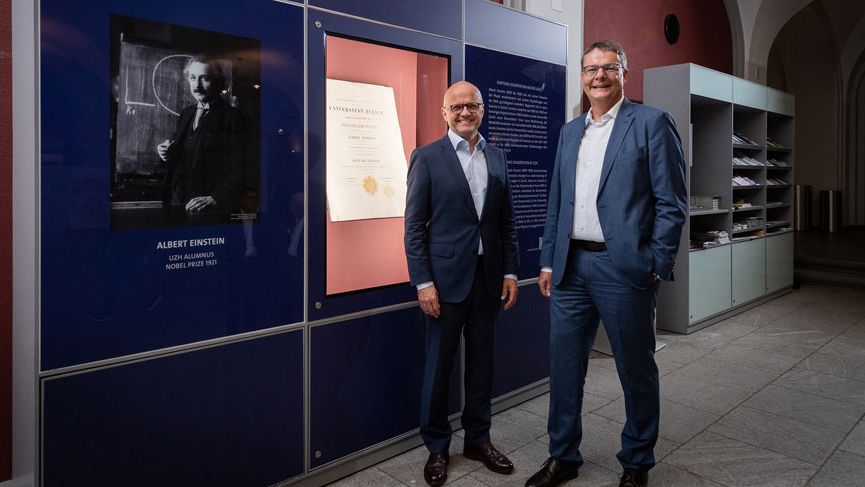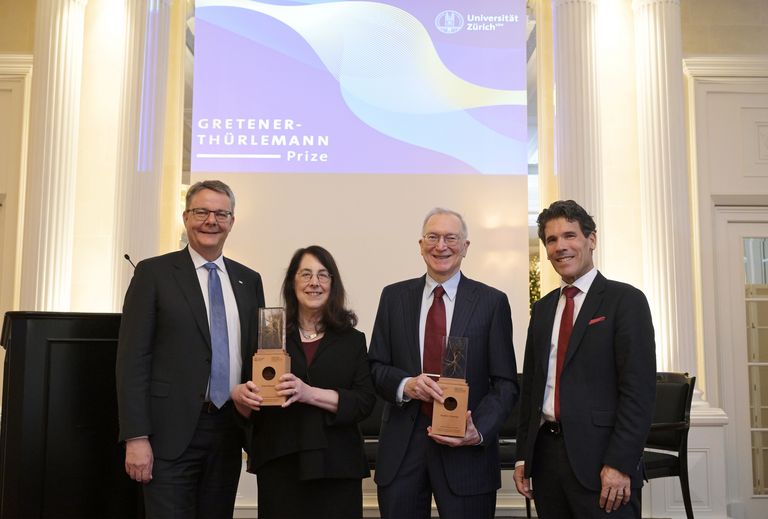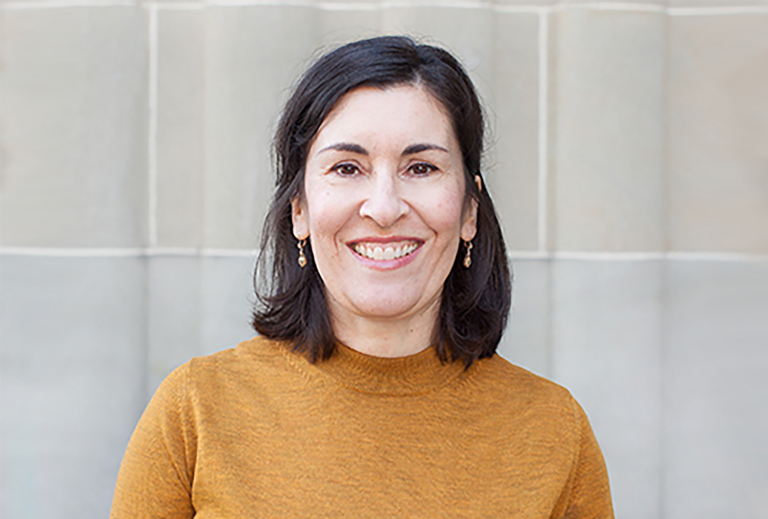The famous physicist and Nobel laureate obtained his doctorate from the University of Zurich in 1906. His doctoral certificate has now returned to UZH thanks to a donation given to the UZH Foundation.
Albert Einstein’s ties with University of Zurich haven’t been that well known to the broad public. In 1905, the 26-year-old Albert Einstein submitted his doctoral thesis «Eine neue Bestimmung der Moleküldimensionen» (A New Determination of Molecular Dimensions) to UZH. One year later, in January 1906, the mathematics and natural science section of the Faculty of Philosophy awarded him the title Doctor of Philosophy.
Many years later, his doctoral certificate would be found in a house in Zurich, where the physicist had lived with his first wife. It was discovered there in the attic in 1948 by a young student from the canton of Schwyz, who happened upon the document and decided to keep it. Some 60 years later, in 2009, the certificate was sold at an auction, only to re-surface at yet another auction in 2022.
Now, after traveling the world for well over a century, Albert Einstein’s doctoral certificate has finally returned to where it was issued, the University of Zurich. UZH was able to acquire the original certificate thanks to a donation given to the UZH Foundation and the historic document is now on display in the entrance hall of UZH’s main building. «Making the doctoral certificate of our alumnus Albert Einstein available for our students and the broader public to view was a unique opportunity,» says Michael Schaepman, President of UZH and Vice President of the UZH Foundation. Various news outlets reported enthusiastically on the historic acquisition.
Read the full article on uzh.ch



